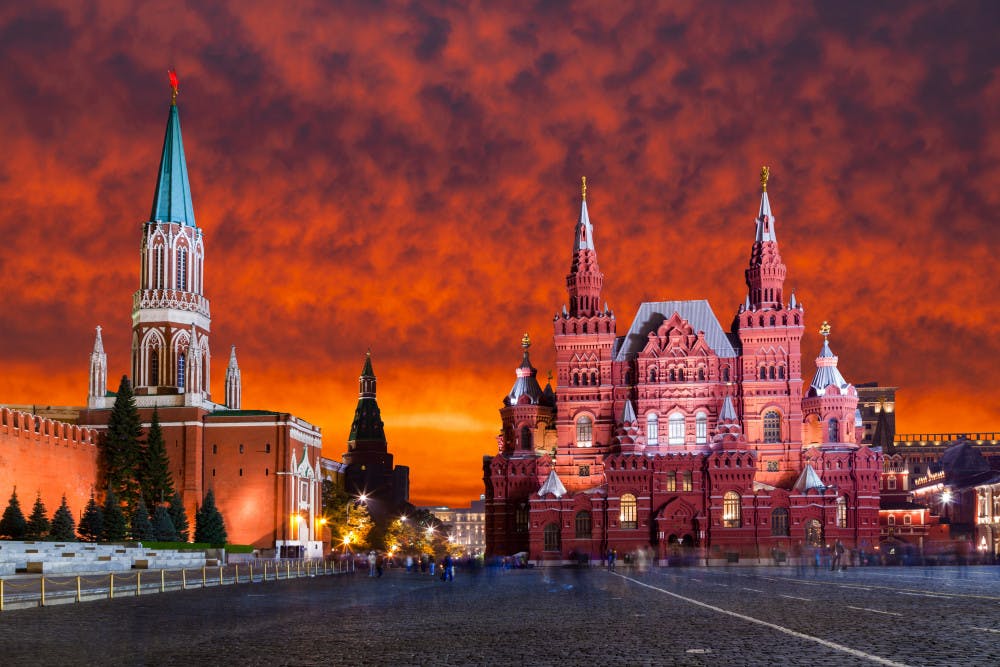By Sarah Adamo
Correspondent
On Jan. 20, thousands of protesters braved temperatures 58 degrees below zero to occupy streets in Moscow and demand the release of an imprisoned anti-corruption political activist named Alexei Navalny who may be incarcerated for up to a year, according to CBS News. In consequence, over 5,100 of the demonstrators faced arrest across the nation, as reported by the Los Angeles Times.

CBS News informed that around Pushkin Square in the heart of Moscow, an approximated 15,000 demonstrators were seized by helmeted riot officers. Some demonstrators received harsh blows from batons.
One protestor in Moscow, Andrei Gorkyov, described the chaos that has overrun the country to CBS News. “The situation is getting worse and worse, it’s total lawlessness,” he said, adding that the silence of the people will only prolong the disorder and repression.
These violent outcomes are the culmination of two-week demonstrations since Navalny’s arrest on Jan. 17 after he returned to Russia from Germany. He spent time in Berlin recovering from an attempted murder by nerve-agent poison back in August, that many attribute to his political opponents in the Kremlin, as reported by the Los Angeles Times.
Navalny found fame on a blog that he used to reveal the corruption of Russian officials to a broader public. He later began his own Anti-Corruption Foundation in 2011 and launched a YouTube channel with currently over six million subscribers.
He also has a history of inserting himself directly into the political scene, campaigning on nationalist ideals and imploring the Kremlin to grant more democratic rights and protections of the West to its citizens. According to The Politico, although Nalvany never held public office, he co-founded an opposition party called Russia of the Future in 2012 to reform the Russian criminal justice system, end government censorship, and eliminate other sources of graft.
Anger flared within the Russian borders when President Vladimir Putin dismissed allegations of fraud perpetrated by his administration, forewent a formal inquiry into Navalny’s poisoning and insisted the international community to abstain from involvement in the internal affairs of his country, the Los Angeles Times continued.
Despite the president’s warnings against foreign intervention, the newly installed U.S. administration promptly shared its disapproval of the protestors’ arrests. According to the Los Angeles Times, Secretary of State Antony Blinken denounced the “persistent use of harsh tactics” used by Russian police over Twitter and echoed the popular demand for Navalny’s release as well as the liberation of his sympathizers.
According to Russian authorities, the reason for Navalny’s arrest pertained to parole violations due to his absence at meetings with law enforcement during his hospitalization in Germany, as elucidated by The Associated Press. This is not his first clash with the law, however. He endured numerous jail time sentences over his alleged involvement in protests against the Kremlin and was convicted of financial misdeeds that he claims also held ties to political aims, as noted by CBS News.
Nevertheless, to the U.S., which has long considered itself an outspoken advocate for human rights, the intolerance and brutality inflicted by Russian police toward the protestors and the arrest of Navalny without a fair trial are sources of concern.
In response to both internal and Western outrage, Russian authorities are establishing new measures of security to prevent demonstrations. According to ABC News, law enforcement in Moscow has shut down subway stations as well as restaurants and other stores close to the Kremlin to deter mass gatherings in the area.
Despite these efforts, however, the Los Angeles Times notes that protest organizers continue to set venues and coordinate their activities over messaging apps and social media platforms. The youth is especially involved in these movements, aware that the results will especially impact their generation and their children. Some protestors are calling for Putin’s resignation for his speculated involvement in the poisoning and arrest of Navalny, as reported by ABC News.
Other activists are taking their cries for justice and political engagement further by insisting that the democratic principles of countries like the U.S. be applied to Russian governance. As 28-year-old scientist Pavel Shilkovsly told the Los Angeles Times, “I want something to change — I want democracy here.”







